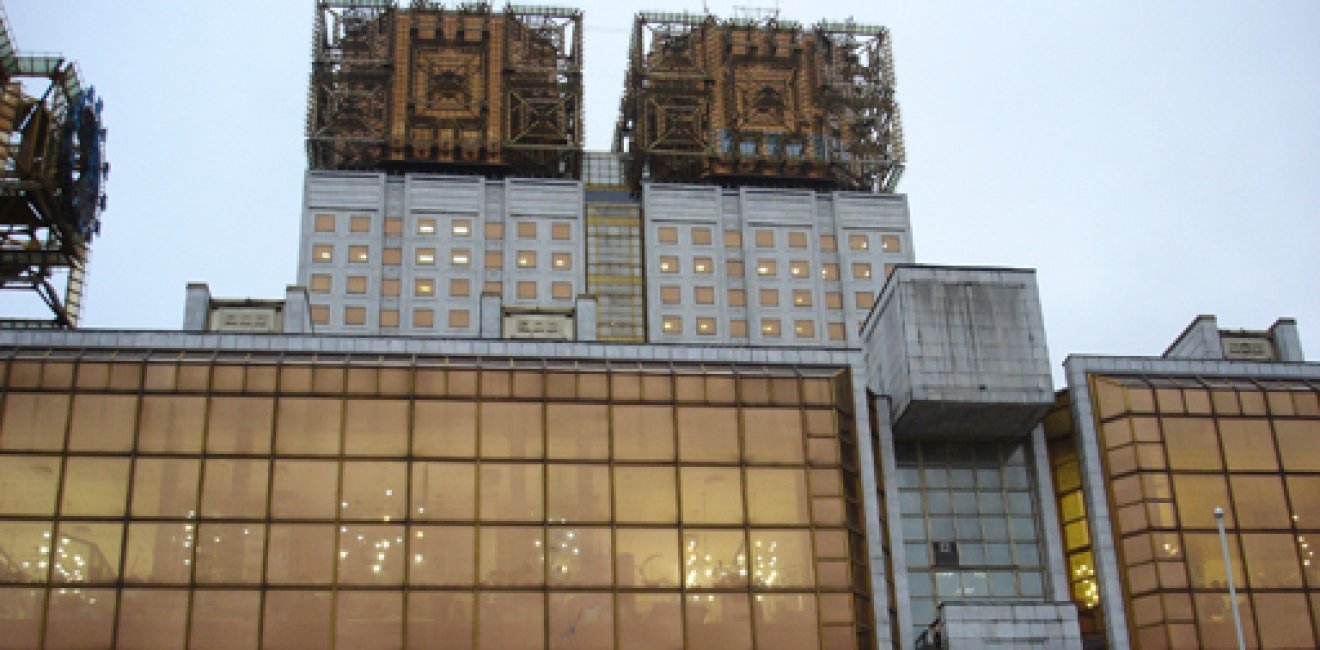Translated by Mary Elizabeth Malinkin.
Over the last two decades since the collapse of the Soviet Union, the potential of education and scholarship in Russia has slowly but steadily declined. On the one hand, despite all of the difficulties these spheres have faced, they have proven to be particularly resilient. With their built-up workforce capacity and asceticism (or inability to "adapt to market conditions"), thousands of scholars and teachers have not allowed the education system to fail, despite the reduction in state funding.
On the other hand, the reduced funding, coupled with the opening of borders and the emergence of attractive careers in business or the public service has led to a gradual exodus of talented young people from academia, which has been the main factor in the gradual decline in the quality of education and scholarship. The bureaucratization of the last decade has practically wiped out academic freedom, and the future of Russian academia looks like it is on a downward spiral towards the “third world.” Scholars and teachers have been living in a state of perpetual change, adapting to innovations, leaving academia, or emigrating from Russia to continue their work elsewhere. But in the last year, this slow degradation was replaced by a hurricane which blew away any remaining institutions and forced those who had stayed in academia to respond.
The first "salvo" came from the government in late December 2012 when it passed a new bill "On Education" (which has since become law on September 1, 2013). Then there was the "road map" for reforms, as well as the Russian State Program on "Development of Scholarship and Technology" for 2013-2020, which few people paid attention to at the time.
Such a massive blow caught teachers and researchers by surprise - only at the end of January did most university staff realize that the "roadmap" included a 40% faculty reduction while increasing the workload for those remaining. Despite protests from educators, the actions of the Ministry of Education and Science in the spring and summer of 2013 showed that the law was being enforced and there was a wave of cutbacks in universities. In the summer of 2013, a bill to reform the Russian Academy of Sciences was submitted to the State Duma without any prior discussion and signed into law on September 27. Under this law, the Academy of Science lost its independence and became subordinate to a newly created government agency. The academic community, concerned about their freedom in research and possible funding cuts, tried to fight it, but to no avail.
As a result, the entire landscape of the academic community was, in the words of the prime minister, "blown up," and we have entered a new era, dramatically different from the previous twenty years. Explanations of "raising standards" do not withstand the simplest check of the text of the reforms, where reductions in financial obligations of the state dominate the feeble declarations for quality research and education. However, the spending cuts in research and education are not recognized by the state as the main purpose of the reforms. I'm not going to speculate here about the causes of the state’s sudden initiatives, but I'll discuss how they influenced the research and education community in Russia, and what needs to be done.
First, the abruptness of the reforms prompted the research and education community to step up its own position. In April 2013 the independent trade union "University Solidarity" emerged, and in the summer and early autumn, thousands of academics all over the country protested the Academy of Sciences reforms. A number of high profile scholars and members of the Russian Academy of Sciences even formed a club, "July 1," named after the date when its initiators submitted a letter of protest and refused to join the new “reformed” Academy.
Even earlier, the Russian academic community had begun to purge from its ranks those who had acquired fake academic degrees, as well as those who enabled the successful "defense" of such theses. Protests erupted on university campuses across the country.
These signs are very revealing. Academics and teachers in contemporary Russia are one of the least organized social groups. Budzhetniki (public sector employees) are dependent on the state, disjointed, and lack structure. However, they have finally started to build horizontal networks. There is still a long way to go to autonomy, but it’s a start. It is important that people have realized there is no alternative: the state has acknowledged its withdrawal from one of society’s central institutions.
The modern Russian state has a bad reputation: even if you ignore the corruption (and how could one ignore it?), reforming anything turns into the bureaucratization of the reformed object. That's what happened in the education reforms. This fall marks 10 years since Russia joined the "Bologna Process," and over the decade, a sea of paperwork was created for teachers and universities to fill out, which greatly reduced any time left for working with students. As a result of the implementation of measures which looked reasonable on paper, the quality of education has fallen sharply, and the life of teachers has become a Kafkaesque bureaucratic nightmare.
Theoretically, the state should represent the public interest and be ready to make compromises, including those on major reforms. But we do not see anything like this in the modern Russian state. The laws adopted by the Duma are not the result of any compromise and they ignore the interests of minorities (and often those of the majority). Carrying out radical reforms and drastically changing institutions that have been around for centuries can only be done by relying on the support (or at least the consent) of the population. The current state does not have a mandate for reform, and that is why it is instead pushing them through like special operations.
This brings us to the key issue of the current reforms. Society itself has not yet had a debate on why science and education are needed at all, and this is a serious failure on the part of scholars — for, who else should start this discussion? Meanwhile, the heads of state and bureaucratic institutions say that government funding should only be used for training future officials and employees of the state. Everyone else’s education should be paid by the businesses who will be hiring the graduates. However, education is a public good — the state spends tax money on education not in order to reproduce itself, but in order to enable every member of society to acquire knowledge and skills and use them in a field where they can make a contribution. The state should be focused on the interests of the entire society, and not its own interests.
The general public has not yet understood the serious threat the destruction of basic science and quality education poses to the country. It is interesting that even in this period of "securitization" of everything, the importance of developing science as an investment in national security has not been part of the conversation.
The increased activity of scholars and teachers defending their interests in the past year has created a community that is ready to discuss the roles and organization of education and scholarship in Russia. It is time to think about non-governmental institutions and how the Russian academic diaspora could play a more active role. Institutionalizing international research groups, or even establishing an "International Academy of Sciences," could help address the crisis.






